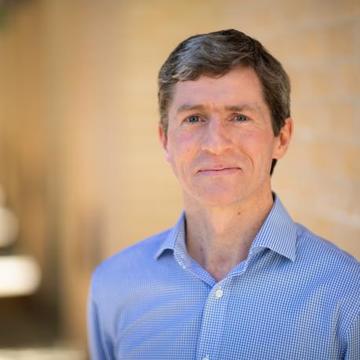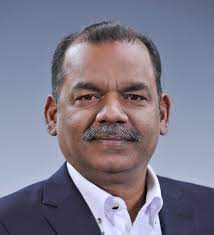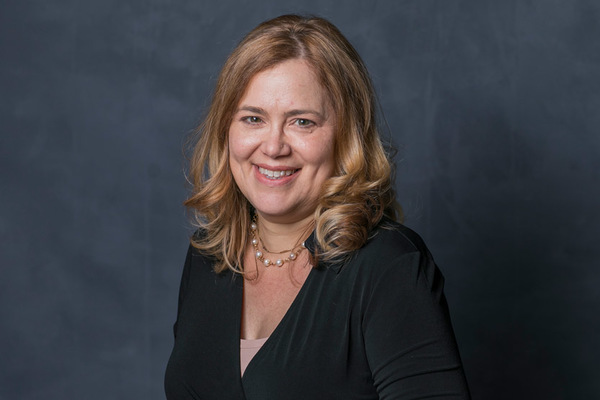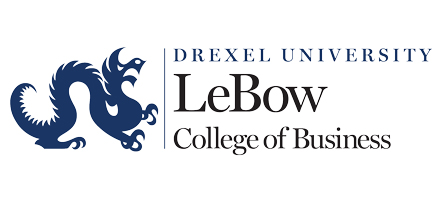
Talent recognizes talent.
That was certainly the case for Ruth Hopkins. Before she started the Executive MBA program at the University of Oxford’s Saïd Business School, she was a classically-trained singer who’d brought her art to autistic children and trained refugee choirs. Not surprisingly, she possesses an eye for great teaching. And she witnessed it first-hand in James Taylor’s Analytics module.

James Taylor, University of Oxford (Saïd)
For Hopkins, Taylor delivered what she calls a “masterclass in mixed-ability teaching.” By that, she means that Taylor found ways to engage everyone, regardless of their varying interests and abilities. “His enthusiasm and approach was infectious and everyone loved his classes, regardless of whether they were A-level or Ph.D. level mathematicians. He made the sessions really fun, keeping the more advanced students engaged by deliberately making mistakes for them to spot, as he worked through problems slowly for the less experienced. Simultaneously, this approach created a safe environment where people felt comfortable making mistakes and learning from them.”
Like every great teacher, Taylor achieved something special in his class: he brought his students into a larger world — one that Hopkins intends to expose to others. “I left his course equally enthused about how I could use more quantitative techniques in my work as well as transferring some of his classroom techniques to my own training programmes,” she adds.
Teaching matters: Their lessons stir new interests and their example sets higher standards. They prepare their students to adapt to an ever-changing world, while inspiring them to become life-long learners. Most of all, their lessons live beyond the classroom, as students turn them into new and better practices. This year, P&Q asked its Best & Brightest Executive MBAs to name their favorite business school professors — and how they made a big difference in their lives. Here are 15 examples of faculty members who were able to make the MBA experience unforgettable to the Class of 2021.
“The lecturers at the Judge were all excellent and the different modules really complemented one another. If I have to pick just one person, then it would be Michael Kitson, who taught me both Macroeconomics and International Business. I loved how he compared different schools of thought such as the Free Market Economy espoused by Friedman and the more interventionist approach advocated by Keynes, but let students decide their personal preference. His use of concepts and frameworks taught to analyse the short-, medium- and long-term economic impact of COVID-19 internationally and to explore mitigation policies was both fascinating and timely.”
Christie Marr, University of Cambridge (Judge)

Bala Ramasamy, CEIBS
“It was Professor Bala Ramasamy. He is always able to explain profound theories in simple language. EMBA students are a group of people with different education backgrounds and working experiences. Professor Ramsamy made the learning journey full of fun and also helped us to understand how the world work together at macro-economy level and how government and financial institute will impact our company in short-term and long-term. As 20+ year finance professional, reading financial institute economy reports used to be very boring task; GDP, consumption, FDI, and Inflation were always only numbers to me. Professor Ramasamy helped me first time to be able to link these numbers with my daily work, help me to project Industry trend and help company to grab more opportunity and mitigate risk at upfront. As business leader, one step ahead is going to build competitive advantage against your competitor.”
Jessie Zhang, CEIBS
“Dean David Bach: In addition to serving as our dean, he taught State and Society during our first year. Dean Bach has a teaching style that is both educational and impactful. We participated in scenarios that provided us with unexpected insights that will leave a lasting impression on us. In addition, he always challenged us to think deeper and wider about our answers and to consider the implications of our actions in both the short and long term. But beyond the walls of the classroom, Dean Bach cared about us as individuals and as a class. He was extremely supportive and present during a hardship we experienced due to the passing of a classmate and he also frequently checked in on us during the pandemic. He embodied the leadership that he was inspiring us to demonstrate in our own lives and careers. Plus, any Dean that welcomes the class by taking a ceremonial trip down a zipline has to be one- of-a -kind!”
Christine Lum Lung, Yale SOM
“Daniel Guetta really stands out. He is a phenomenal teacher who truly cares about his students’ success and was able to create one of the most dynamic and energetic classrooms I’ve experienced, all through Zoom. I took Business Analytics with Professor Guetta during the summer of 2020, in the midst of COVID and the Black Lives Matter movement. Professor Guetta dedicated a full lecture at the end of our course to dive into the complex ethical questions that cannot be decoupled from analytics – namely algorithm bias and its impact on our justice system, race, and gender bias, and our own social decision-making. Integrating ethics into the MBA curriculum rather than having it as an obligatory add on is what will promote the same kind of behavior in board rooms.”
Ida Posner, Columbia Business School

Risa Mish, Cornell University (Johnson)
“We were fortunate to have a number of student-centered and talented professors. If forced to choose a single favorite, it would be Risa Mish. Few people better embody the title “Professor of the Practice of Management.” Risa thinks deeply about how to cultivate an environment of lasting takeaways for her students. Her expertise in management and organizational dynamics is informed by her ability to cross-pollinate from her training as an attorney, success as a fundraiser, experience as a board member, and engaging style as a keynote speaker. Risa is authentically committed to being of service to her students.
Ari Betof, Cornell University (Johnson)
“My favorite professor would be Henrik Bresman, who teaches Organizational Behavior. Not only were the class topics personally, but the method of teaching as well. He led us through practices to understand how to put the context of what happens in managing organizations every day and what to do to improve the challenges. Also, I personally appreciated his agility in adapting hybrid method of teaching in the ‘new normal’ – which showed he truly wants every student to have the best learning experience. Personally, his studies around driving change in organization was also very interesting which I looked up after finishing his class for further learning. His lectures always gave me a good balance between theory and practice, and above all future food for thought that I can take back in my work.”
Eunsoo Johanna Jeong , INSEAD




